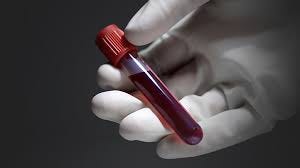When ‘routine blood tests’ do more harm than good
Another medical ritual has been found to have little value.
Back in May 2017, I conducted a Deep Dive webinar, ‘Understanding Your Blood Test Results’, for members of my EmpowerEd health and nutrition education program. You can watch the webinar and download the fully-referenced slides by taking up the 1-month free trial of EmpowerEd here.
Before diving into the most common blood tests (full blood count, UEC/LFT, iron studies, thyroid function studies and so on) and what high or low readings on each of these might mean, I discussed an article that was published in the British Medical Journal titled ‘Should we abandon routine blood tests?’
Although the article referred specifically to routine blood tests ordered for hospital patients (secondary care), the concerns raised by the authors are just as relevant to primary care settings, for example, a GP appointment.
I’m frequently asked by new clients, “What blood tests should I have before I come to see you?” My usual response is, “I won’t know which tests might be helpful until I actually speak to you and find out more about what’s wrong with you, as well as what you’ve been tested for in the past.”
This is what the authors of the BMJ article mean when they write,
“Historically, blood tests in secondary care were requested for defined indications and only after a detailed clinical history and examination of the patient.”
They contrast this thoughtful approach to test requests in the past, with the current situation:
“Requesting a standard battery of blood tests without due regard to clinical indication has become the norm—with no distinction made between patients with a variety of presenting complaints, from chest pain to fractures.”
You might be wondering what possible harm might come from routine blood tests, apart from having to have a needle in your arm, and losing a little blood volume! Isn’t it always better to have more information?
No, argue the doctors who wrote the article.
For starters, blood tests cost money to perform, and although routine blood tests are bulk billed under Medicare in Australia (and covered by the National Health Service in the UK, where the BMJ article’s authors hail from), thus shielding the patient from their true cost, the reality is that it’s taxpayers who foot the bill. Healthcare costs are rising inexorably every year, and money spent on unnecessary tests is money diverted from more worthwhile applications.
I for one would rather see schools able to purchase new computers without having to hold a bake sale, than have hundreds of thousands of dollars wasted on running tests that don’t provide any clinically useful information, which would seem to be the case if “up to 60% of abnormal investigations documented in medical notes do not lead to further investigation”.
For seconds, ordering a standard battery of tests undermines clinical judgment. It’s often an excuse for not spending adequate time actually talking to the patient and examining them. As students, health care providers (both doctors and naturopaths) are taught ‘differential diagnosis’ – that is, how to whittle down the long list of possible diagnoses that match a patient’s symptoms, to a short list of likely diagnoses that may require further testing to confirm.
For example, a headache may be caused by anything from dehydration to a brain tumour, but it would be extraordinarily irresponsible to send every patient who had a headache for an MRI scan to check for tumours!
I’ve seen many clients over the years who bring along reams of past test reports, most of them with results in the expected range. In practically all of these cases, the client either has vague symptoms such as fatigue or stomach discomfort, or a slew of symptoms affecting multiple body systems.
And in practically none of them has any practitioner they’ve seen in the past, ever asked them about what they eat, how much sleep they get and what’s going on in their lives. More often than not, improving their diet and lifestyle habits and handling their emotional and psychological difficulties either gets rid of their symptoms altogether, or reduces them to the point where carefully selected tests – rather than a battery of ‘routine tests’ – are likely to produce useful information about the cause of their remaining concerns.
Finally, ordering ‘routine bloods’ results in overdiagnosis – the identification of ‘abnormalities’ or ‘diseases’ that will never actually cause symptoms or result in premature death – and overtreatment – medical or surgical care that isn’t actually required, and may result in psychological, financial and physical harms.
This video of the brilliant (and very funny) Dr H. Gilbert Welch clearly explains overdiagnosis and overtreatment:
I’ve seen plenty of examples of this in my practice:
Men whose ‘routine’ PSA testing resulted in a diagnosis of prostate cancer (generally a slow-growing cancer which can be often be managed using lifestyle modification) for which they were aggressively treated, resulting in urinary incontinence, erectile dysfunction and bowel damage from radiation treatment;
Women whose ‘routine’ scan detected thyroid cancer (again, generally a slow-growing cancer for which the death rate has held steady over the last few decades while the incidence has increased dramatically, indicating substantial overdiagnosis) resulting in surgery, radiation treatment and a lifetime of thyroid hormone replacement therapy; and even
A woman whose ‘routine’ blood tests revealed elevated levels of a marker of autoimmune disease, for the ‘treatment’ of which her doctor prescribed a highly toxic medication, specifically contraindicated during breastfeeding, even though the woman had absolutely no symptoms and was currently breastfeeding her baby!
Recently, in a Facebook group to which I belong, a woman whose ‘routine’ blood test had detected low ferritin (iron stores) reported that her doctor had prescribed an iron supplement, although she had no other blood markers of iron insufficiency, no symptoms of iron deficiency, and a perfectly normal haemoglobin level. Iron supplements are not without harms, and the decision to supplement with iron should be carefully considered, and definitely not based on a one-off blood test.
It’s important to remember that lots of perfectly healthy people live outside the reference ranges printed on blood test reports. For example, I have several clients whose ferritin levels have been in the ‘iron depleted’ range for over 10 years, yet they’ve never developed anaemia or any symptoms indicating inadequate iron status. Conversely, plenty of unhealthy people live inside reference ranges; everyone knows at least one junk food-munching couch potato whose cholesterol level and blood pressure are ‘perfect’!
The bottom line is, if you have no symptoms of illness, and don’t already have a diagnosed condition such as type 2 diabetes or cardiovascular disease which requires regular monitoring, you don’t need ‘routine’ blood tests – with a couple of exceptions, such as monitoring serum vitamin B12 levels if you’re on a plant-based diet and haven’t been consistent with your supplementation. Furthermore, having those tests may do you more harm than good.
If, on the other hand, you have symptoms that don’t respond to intelligently-directed lifestyle changes, or that worsen rapidly, then get to a doctor or hospital and have all the (clinically indicated, rationally chosen) tests you need to find out what’s wrong with you.





super stuff, prof Robyn...cheers...A thought- if we mechanics fixed cars like mds 'fix' humans,
we'd all end up walking...but since the human body is so resilient, the medicalmafia get away with it
Don't forget how these 'ranges' are decided.
Women often seem to have 'low' iron on their blood tests - because the path labs are using a range that would be better suited to a male! And don't forget that most women bleed each month. Women are going to have lower iron levels on a blood test than a male, in general. I've seen SO many blood tests where the woman supposedly has low iron, but she's fine, has loads of energy, isn't anaemic, and it in fact made me start to question routine blood tests as well - especially their 'ranges'. If you don't have the right markers for that patients, then they're pretty useless tests.
And sometimes the pathology labs change the range of something because, well, they feel like it (I'd like to say that it has a lot to do with science, but it often doesn't!). I've had this done before and I was in the normal' range with iron, but then they changed the range and suddenly I was 'low' even though I felt fine and nothing had changed in me - just an arbitrary range on my results!
If you have NO symptoms then it's not much to worry about. For example, my TSH runs at the lower end of 'normal' - and it always has. My Mum's also runs relatively low. It's probably genetic. BUT, mine bordered on hyperthyroidal for a bit there. Long story cut short, I got my Coeliac under control by making all my own food and stopped eating out and lo and behold my TSH went back to 0.92 instead of 0.51. I started putting on a little bit of weight again and I felt fantastic. Amazing what happens when you're not getting poisoned! :-D
So yes, tests CAN be useful - but my symptoms also explained what was going on. Eating right got me right. I never needed medications or blood tests in the end - just the right food! Still, at the time, I was feeling pretty rotten, and so I thought bloods would help me understand things. I guess the only thing they helped with was that I could see my numbers changing (my TSH dropping) over time, and THAT concerned me. However, the doctor wasn't concerned because he said my TSH was still in the 'euthyroid' (AKA 'normal') range. It was 0.51. Low TSH was considered 0.50 and below. So I had a 0.01 difference, quite a few symptoms and he said I was normal. He didn't even bother checking my changes through time. Ha! No wonder I took my health into my own hands. I know so much more useful stuff than medical practitioners!
I've also seen blood tests where everything looked fine - but if the patient went for a run around the block they'd drop dead! And one patient I am thinking of now DID end up dropping dead! Blood tests are sometimes so very useless. They CAN be useful, but in many cases, I think we could do without them. I can't be bothered having any more tests. I've had enough to know my baseline. And my body tells me if I'm having issues. If I listen to my body, I know what I need to do. Maybe people are too lazy to listen to their bodies, who knows. But really, if you're not getting symptoms, on the whole, how problematic IS it?!?! And one test tells you very little. You need to have them through the years so you can see the PATTERNS emerging. Once you know your patterns, in many cases, you probably don't need any more blood tests - or rarely, anyway.
I also don't see why we need a 'test' for everything when a thorough history will determine about as much as a blood test, anyway. The added bonus is that there are no nasty invasive tests during the history! :-D